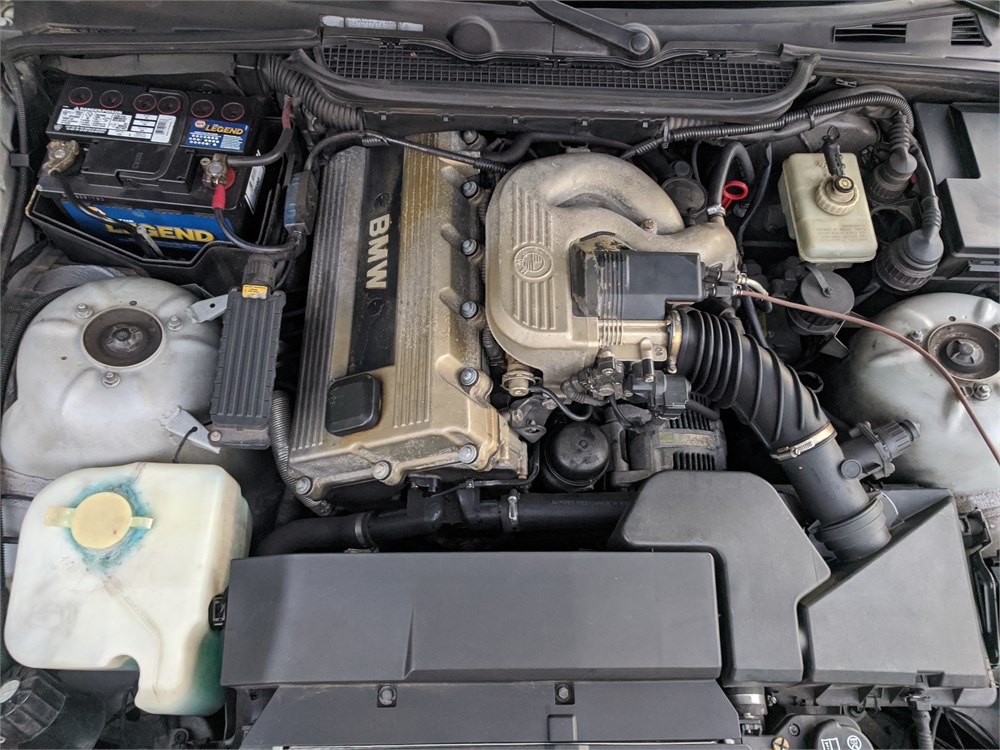Important Considerations for Selecting the most effective Engine for Your Needs
In the realm of choosing the suitable engine to meet your demands, several important aspects demand careful factor to consider to guarantee optimal efficiency and effectiveness. From the nuanced balance in between power and efficiency to the often-overlooked aspects of maintenance and solution needs, each element plays a critical role in establishing the most suitable engine for your certain needs.
Power and Performance
When assessing engines for optimal performance, it is vital to focus on both power result and efficiency. Power output measures the capability of an engine to generate energy, which straight impacts its performance. A high power outcome is necessary for demanding jobs such as high-speed requirements or sturdy applications. It guarantees that the engine can handle the work effectively and effectively. Nevertheless, power alone is not enough; effectiveness plays a substantial function in identifying the total performance of an engine. Performance refers to exactly how well the engine transforms gas into useful power. A more effective engine will certainly supply far better mileage, reduced emissions, and reduced operating costs. Striking the best balance between power outcome and efficiency is vital to selecting an engine that meets your specific requirements. It is important to consider elements such as the planned use of the engine, ecological impact, and lasting price ramifications when making this decision. By very carefully examining both power and effectiveness, you can select an engine that provides optimum efficiency and satisfies your needs properly.
Gas Efficiency and Economic Climate
In the world of engine selection, the factor to consider of gas performance and economic climate holds extremely important value. Fuel efficiency describes the engine's ability to transform fuel into power with very little waste, straight influencing operating expense and environmental sustainability. bmw 318ti. When choosing an engine, evaluating its gas economy is important to figure out long-term cost savings and environmental impact. Engines with greater gas efficiency not only decrease gas costs but likewise decrease carbon exhausts, adding to a greener operation.

Compatibility and Application
Considering the gas effectiveness and economy of an engine, the following critical aspect to address is its compatibility and application within particular operational contexts. Compatibility refers to just how well the engine integrates with the total system or equipment it powers. It includes factors such as physical measurements, placing choices, electric interfaces, and control systems. Making sure compatibility is important to stop concerns such as getting too hot, vibrations, or power inequalities (bmw 318ti).
Various engines are created for certain objectives, whether it be industrial equipment, marine vessels, automobiles, or power generators. Understanding the intended application permits for the selection of an engine that can provide the necessary power outcome, torque, and operational characteristics.
Maintenance and Solution Demands
Upkeep and service needs play an essential role in ensuring the long life and ideal efficiency of an engine. Regular upkeep is vital to avoid failures, prolong the life-span of the engine, and preserve its effectiveness. When selecting an engine, it is very important to take into consideration the producer's advised upkeep routine and the availability of solution centers or certified technicians.
Variables such as the regularity of oil changes, filter substitutes, and total evaluations can dramatically influence the engine's performance. Some engines may require more constant servicing based on their style and usage, while others might have longer intervals between upkeep checks. It is essential to stick to these service requirements to stay clear of pricey fixings and unanticipated downtime.

Price and Budget Factors To Consider
Spending plan constraints commonly play see this here a considerable duty in the decision-making procedure when picking an engine for a particular application. When considering the price and spending plan effects of picking an engine, it is vital to examine not just the first purchase rate but additionally the lasting expenses connected with maintenance, fuel usage, and prospective upgrades or fixings. It is critical to strike an equilibrium in between the ahead of time price of the engine and its overall lifecycle expenses to guarantee that the chosen engine stays financially lasting throughout its functional life expectancy.
Elements such as learn the facts here now fuel dependability, efficiency, and longevity can straight affect the total price of possession of see it here an engine. While a much more expensive engine may have higher ahead of time costs, it can potentially result in lower maintenance and gas costs over time, hence providing much better worth in the long run.
Conclusion

Fuel efficiency refers to the engine's capacity to convert gas right into energy with very little waste, straight affecting operating costs and ecological sustainability.Factors affecting fuel effectiveness consist of engine layout, combustion effectiveness, and total efficiency optimization. Additionally, choosing the appropriate fuel kind and quality as recommended by the engine maker can better enhance efficiency and extend engine life expectancy.
Engines with excellent use attributes and conveniently offered components can decrease upkeep prices and decrease the time the engine is out of procedure - bmw 318ti. It is important to strike an equilibrium in between the ahead of time price of the engine and its total lifecycle prices to make sure that the picked engine continues to be monetarily lasting throughout its functional life-span